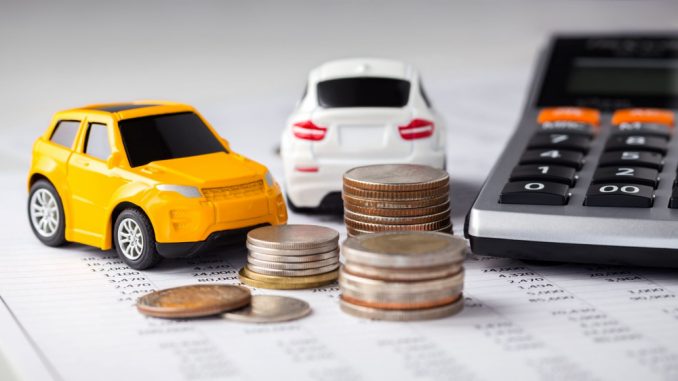
Increase your savings! These are easy ways to save on transportation costs.
The cost of transportation continues to be a challenge for many people. From gas prices to maintenance, car ownership and usage is not cheap. When you add up all the expenses related to your vehicle – insurance, maintenance, repairs, parking, gas, tolls, etc.– it’s easy to see how this can become a big expense.
Fortunately, there are plenty of ways that you can save on transportation costs so that you have more money in your pocket and less stress about getting from point A to point B.
Here are some tips on how you can reduce your transportation costs and save money each month.
1. Drive an economical car
The cost of car ownership can be high, but owning an efficient car can make a big difference in your gas and maintenance costs. Several websites now publish a report every year on the most fuel-efficient car models in the UK, so you can make sure that you’re driving a car that will save you money on gas.
You should factor in the extra costs of more frequent oil changes and more frequent car maintenance throughout your loan or lease term. If you buy the car outright, you’ll have to pay more upfront, but you’ll save a lot on maintenance and gas over the long term.
2. Find the cheapest gas near you
The price of gas fluctuates throughout the year, so it pays to keep an eye on prices at different gas stations near you. You can now do this very easily on your phone by installing a gas-pricing app. These apps will let you know which gas stations near you have the cheapest gas, so you can save yourself some extra driving.
If you’re driving long distances, it also helps to know which stations have the cheapest gas because you might save a few quids by driving a few extra miles. You can also look at the price trends for gas stations in your area over the past few months, which may indicate if gas prices are about to go up or down.
3. Utilize public transportation
If you live in a major city, you may be able to utilize public transportation for a portion of your commute or all of it. If this is the case, then you save money on gas and vehicle maintenance and can put that money towards other expenses.
Public transportation is also usually less stressful than driving in traffic, which can be helpful if you have a long commute. There are also plenty of apps and websites that can help you plan your commute, track buses, etc. so that you never miss your ride.
4. Carpool
If you don’t have access to public transportation, or if you work in a smaller town where it isn’t an option, carpooling is another good option to save money on your commute. You can either find a ride-share app that connects you with other people in your area, or you can ask around at work to see if anyone would be interested in carpooling. If you do carpool, be sure to draw up a carpool contract to protect both you and your fellow commuters.
5. Negotiate your repairs
If your vehicle needs repairs, you may need to take it to a mechanic. Not all mechanics are created equal and the price of fixing your car can vary wildly. You can try to negotiate the price of the repairs if you do repairs yourself, or if you have a friend or family member who is willing to do it for you.
If you have comprehensive car insurance, you may be able to get your repairs covered. You may also want to consider purchasing a service contract for your vehicle if you drive a lot and know that repairs will be an ongoing expense.
6. Take advantage of auto co-ops and service clubs
If you own a car, you will likely have to deal with repairs at some point. A good way to save money on repairs is to take advantage of auto co-ops and service clubs.
Auto co-ops are non-profit organizations that allow members to borrow tools, get advice, and even get repairs done at a reduced rate. There are also service clubs, which are organizations that help members with repairs and maintenance. If you are a member, you can often get repairs done for less than the cost of going to a mechanic.
If you belong to a service organization, you may be able to access discounts on car insurance premiums. These organizations can provide significant savings on transportation costs, so make sure you are taking full advantage of any discounts you are entitled to.
7. Adjust your commute timing
Depending on your commute and the time of day, you may be able to save money on transportation costs by adjusting your commute timing. If you drive to work during rush hour, you may be spending more on gas, car wear and tear and car maintenance than you would if you carpooled with a colleague or took the bus or train.
If you can work out a carpool with a colleague who lives nearby, you may be able to save on your monthly transportation costs. If your employer offers a shuttle service or a nearby city has a train or bus route that you can take, you can save even more on your transportation costs by commuting more efficiently.
8. Drive more efficiently
If your car is more than 10 years old, your car’s fuel efficiency is almost certainly lower than it was when the car was new. You can improve your car’s fuel efficiency by keeping it well maintained, checking your tire pressure and the air in your tires, driving at a consistent speed and avoiding hard accelerations and decelerations.
If you have a newer car, you can improve your fuel efficiency even more by using technology designed to help you drive more efficiently, such as apps that monitor your car’s fuel efficiency, GPS navigation apps and smartphone apps that monitor your driving patterns.
9. Combine your commute with walking or running
If you have a long commute and are up for an extreme level of savings, you might want to consider combining your commute with walking or running. You can walk to a nearby train station or bus stop, or you can walk or run to work. You might be surprised at how quickly this adds up to significant savings.
If you can walk or run to work, you can save on gas and car maintenance costs, as well as get some exercise to boot. Depending on the length of your commute, this may not save you as much money as you might think, but it can also help you avoid parking and toll costs, which can add up over time.
Walking or running to work may not be a viable option for many people, but if it is, it can help you save on transportation costs. If you have a longer commute, you can also consider using a bike to get to work. You can either ride your bike to work or park your bike at work and take public transportation the rest of the way.
10. Research the best type of car for your needs
If you are in the market for a new vehicle, you may want to consider the best type of car for your needs. This can help you avoid the temptation to buy a car that is more expensive than you can afford, and will also help you figure out which type of car repairs are the most cost-effective.
Choosing the right fuel type for your vehicles, such as hybrid or electric, can also help reduce your fuel expenses.
Finally, you should consider your commute when choosing a vehicle. If you have a long commute and plan on driving a full-size truck or SUV, you may want to rethink your choice. These vehicles are not the best choice for long commutes, especially if you have to drive during rush hour.
11. Negotiate a price you’re comfortable with when buying a car
When you are ready to buy a car, you should negotiate the price. This is something that most people don’t do, but it is an easy way to save money.
You may be able to save money on transportation costs by negotiating a price on a new car or trading in your current car when you buy a new one. Many car dealers offer their customers a low initial price on the car and then jack up the price when you are ready to sign the contract.
If you negotiate a price that is within your budget, you may be able to save money by not letting the dealership know how much money you have available.
You can also consider buying a used car. Used cars cost significantly less than new cars, so you may be able to save money on transportation costs by purchasing a used car instead of a new car. By shopping for used cars in your area, you can save even more money on transportation costs.
12. Maintain your vehicle to reduce repair costs
You can reduce your expenses by maintaining your vehicle well. This can help you avoid repairs and save money. You can check your vehicle’s oil, check the tire pressure, and do other simple maintenance tasks to keep your car in good shape. You can also try to plan for repairs by having enough money set aside for a car repair fund.
Finally, you can ask friends and family members if they know someone who works on cars and is looking for side work. This can save you money on repair costs since someone who is not a professional mechanic will likely charge significantly less.
13. Utilize on-demand services like Uber
If you are going to a special event, or simply want to avoid driving during rush hour, you can utilize on-demand services like Uber. These services work much like a taxi, but you can use them at any time. They will likely be more expensive than taking a taxi, but they are convenient if you are pressed for time.
Additionally, you may be able to earn credits towards future rides by signing up and taking short surveys or quizzes. These tips will help you reduce your transportation costs, save money, and have more freedom to live your life.
14. Negotiate your car loan and lease terms
When you finance or lease a new car, you generally have some flexibility in terms of the down payment and interest rate that you’re offered.
If you’re financing your car with a traditional loan, you might be able to negotiate a lower interest rate with your bank. If you’re financing your car with a lease, you can try to negotiate a lower monthly payment with your leasing company.
15. Change the oil and rotate your tires regularly
You can save money on your transportation costs by taking maintenance matters into your own hands. Even if you drive a super-efficient car, you should change the oil and rotate your tires regularly. The cost of these services, which should be done every 3,000 miles or 3 months, is much less than the cost of an engine repair.
You can save a lot of money over the long run by learning how to change the oil and rotate your tires yourself. You don’t have to be a mechanic to change your oil. All you need is a decent pair of gloves and a wrench. You can do the same with tires. All you need is a jack, a wrench, and a good tire iron.
16. Negotiate your parking rates
Parking rates are a significant part of many people’s transportation costs. If you work in a busy downtown area, you may be paying a small fortune to park.
If you’re not in a position to relocate to a less expensive part of town, you may want to negotiate a better parking rate with your boss or building manager. You can use good negotiating skills and a positive attitude to make your case for a better deal.
17. Drive less
If you drive a lot, you’ll probably want to do everything you can to reduce your driving frequency. This includes driving less when you travel for work, carpooling with coworkers, and finding alternative modes of transportation in your free time.
If you have to make frequent business trips, you can look for nearby airports with cheap flights and consider car- or van-pooling with your coworkers to reduce your driving frequency.
Finally, in your free time, you can use public transportation whenever possible and consider biking or walking whenever it’s feasible.
The bottom line
All of these tips can help you reduce your transportation costs and save money each month. Each of these tips is easy to implement and can help you save hundreds or even thousands of dollars each year.
When you combine these tips with other frugal practices, such as shopping for car insurance during your state’s annual insurance open season and keeping your car in good repair, you can reduce your transportation costs and save money each month.



